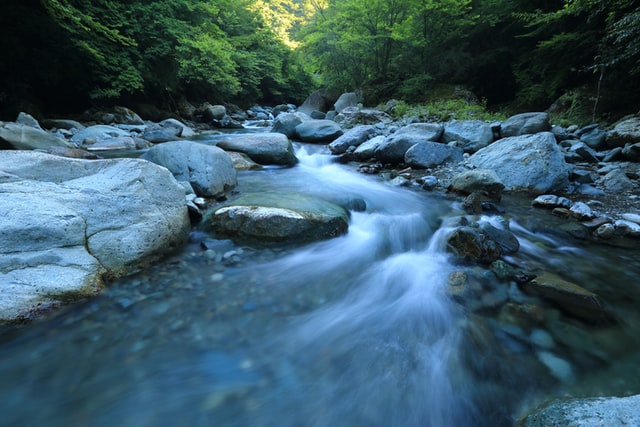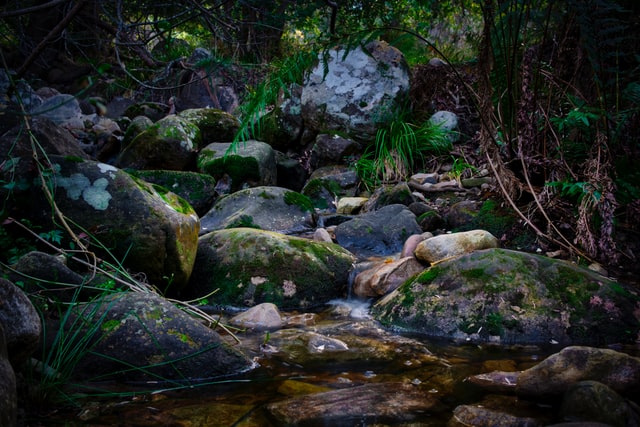
Eau
If you are planning on living OffGrid you must have a reliable source for water. Whatever source you may choose, filter your drinking water.
It is not recommend using self built filters for this as they usually lack the capacity to take out chemicals and poisons. A triple filter is usually the best solution, consisting of a rough sediment filter, a 5-10µm filter and a activated carbon filter. It is highly recommended to have your water checked for purity once every year! Depending on the location and the germs count of your water tank it can be necessary to boil your water before using it as drinking water.
Water can be used to produce electricity as well, find more details on that in the hydroelectric section.
Water is essential
How to source water ?

Well
The most conventional way to collect water when living OffGrid is to drill a well. Usually this is a necessity. You will have to have a well to survive unless you are near a body of water such as a river or lake. You should also consider how to get that water to the surface. Pick the size of the pump according to your setup. Consider: power-consumption, maximum height, distance, desired pressure. For backup purposes or in very power-limited setups it is possible to install a hand pump for the well.
Eau de pluie
One of the most popular and power efficient water harvesting methods is collecting rain. Usually it is done by using a barrel that is connected to your gutter system. Depending on your needs and local conditions the storage size can go from some 100 litre barrel to a 5000 litre cistern. Below-ground cisterns are recommended for colder climates, they can be placed beneath the frost line to prevent freezing. If possible try to avoid using roofs that have a chimney for water harvesting. The more accessible the collecting surface is, the more easy it is to keep it clean and free of random leaves. Purify the rainwater before using it as drinking water. All sorts of pollutants can be found in the air or on the collecting surface that we can’t see, smell, or taste.
Rivers / Lakes / Ponds
Possible uses for this water depends on the quality of the water source. Water from a slow-moving stream or a lake might be better for plants, bétail, pets or washing clothes than human consumption, if used unfiltered.
Humidity
This is probably the most challenging approach. Sourcing water out of the air requires either a reasonable amount of power with special equipment, or a lot of m² for special passive harvesting nets. Unless there is absolutely no other way of sourcing water do not consider this. (we’re talking literally going OffGrid in a Desert).